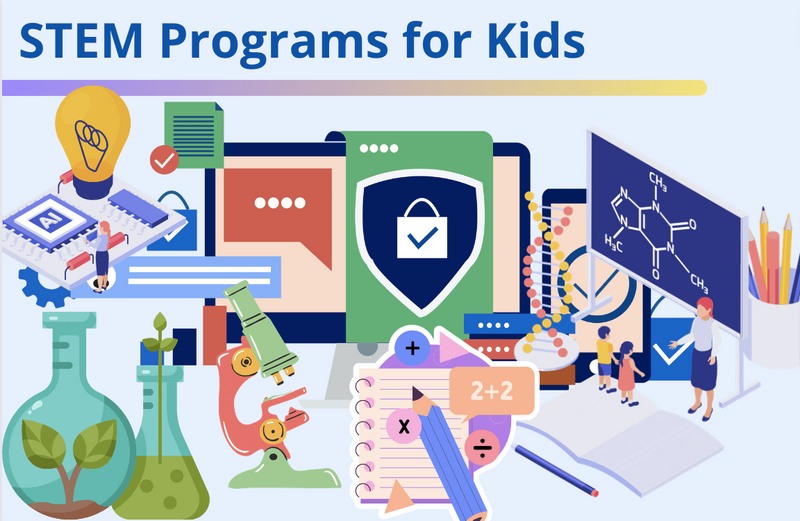Are you looking for the best STEM programs for kids to kickstart their journey into science, technology, engineering, and mathematics? Choosing the right program can open up a world of discovery and learning. In this blog, we’ll explore twelve excellent options catering to various STEM fields interests.
Math & ELA | PreK To Grade 5
Kids see fun.
You see real learning outcomes.
Watch your kids fall in love with math & reading through our scientifically designed curriculum.
Parents, try for free Teachers, use for free
12 Best STEM Programs for Kids
1. SplashLearn
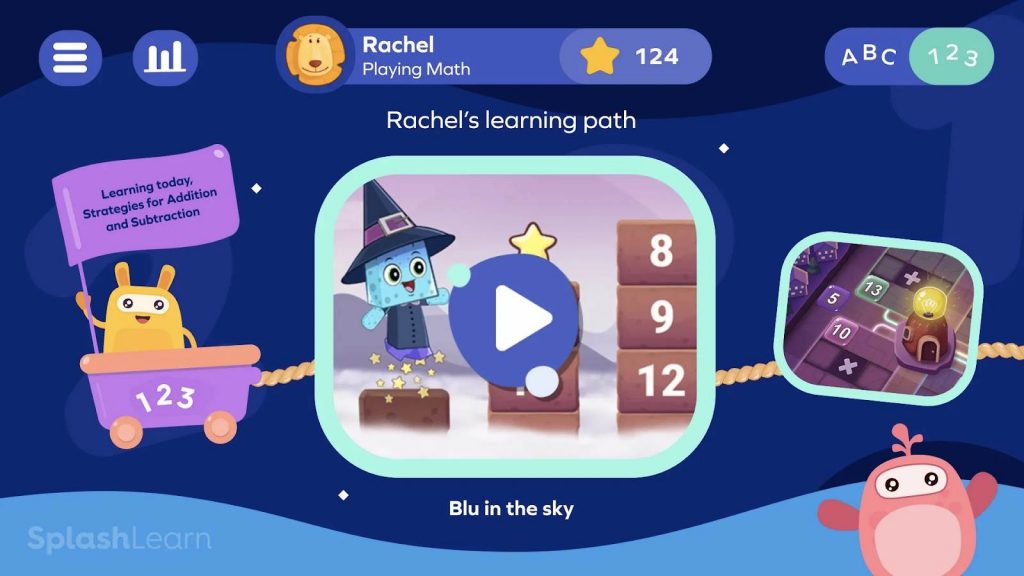
Best for: Ages 2-11
Topics Covered: Math
SplashLearn is one of the best online stem programs that engages kids with interactive math games that turn learning into an adventure. The program uses colorful animations and engaging storylines to make math concepts come alive, keeping kids interested and motivated. Each game teaches specific math skills through hands-on practice, with adaptive technology personalizing the learning experience based on the child’s progress.
A key feature of SplashLearn is its use of positive reinforcement. Wrong answers are met with a cheerful “Let’s try again!” which encourages kids to explore, problem-solve, and tackle math challenges without the pressure of traditional grading.
To further enhance learning, SplashLearn offers live classes that provide real-time demonstrations and interactive discussions. These classes bridge the gap between theory and practice, ensuring students gain a deep understanding of math concepts while boosting their confidence and transforming math stress into excitement.
Why parents & teachers love SplashLearn:
- Interactive and visually appealing games
- Personalized learning paths
- Real-time feedback and progress tracking
- Positive reinforcement to encourage learning
- Live classes that bring math concepts to life
2. Bricks 4 Kidz
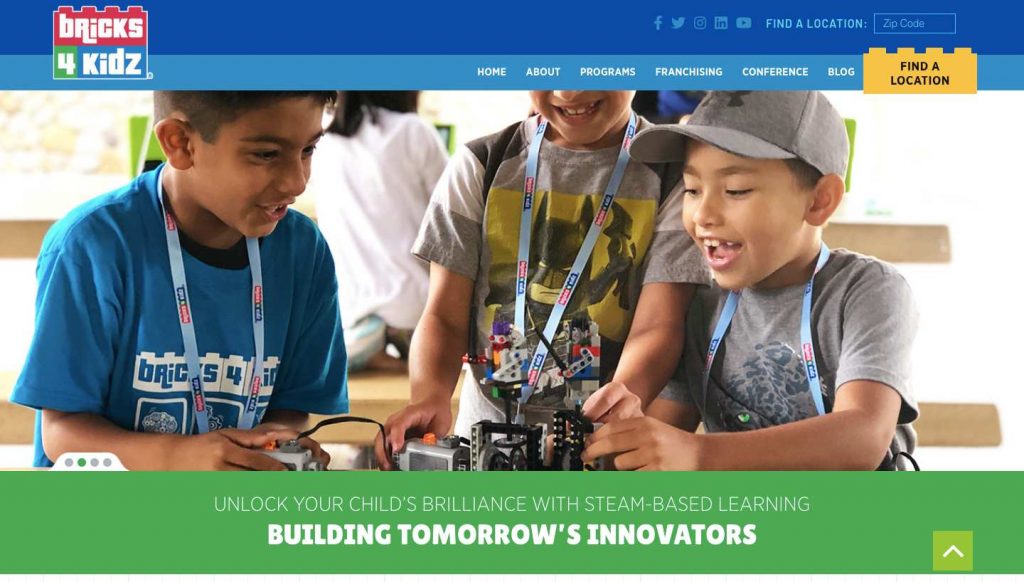
Best for: Ages 5-13
Topics Covered: Engineering, Physics, Robotics
Bricks 4 Kidz teaches engineering and physics using LEGO bricks, a familiar and engaging tool for kids. The program integrates learning with hands-on building projects, which helps children grasp mechanical concepts and problem-solving techniques. Each session is designed to challenge students with new constructions, making complex subjects accessible and exciting.
What we like about it: We appreciate Bricks 4 Kidz for its innovative use of LEGO bricks to introduce young minds to robotics and advanced mechanical design. Incorporating everyday toys into educational contexts enhances learning and keeps children motivated and eager to engage with STEM topics.
3. Club Scientific
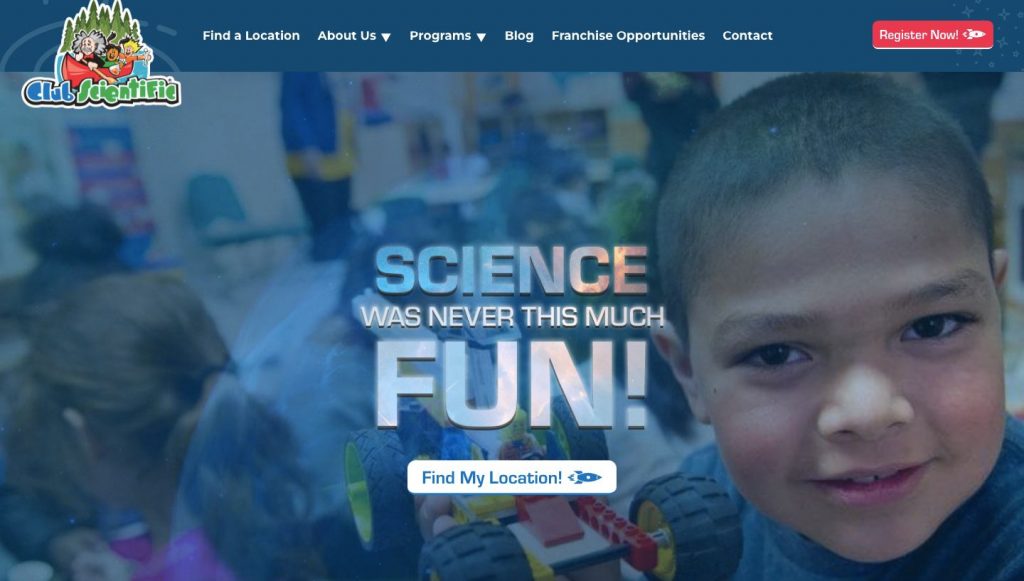
Best for: Ages 4-14
Topics Covered: Biology, Chemistry, Environmental Science
Club Scientific exposes children to a wide range of scientific disciplines through hands-on experiments and projects. The program emphasizes practical understanding and application of scientific concepts in areas such as robotics, biology, and environmental science. Each project is designed to be both educational and engaging, ensuring students apply what they learn in a real-world context.
What we like about it: The aspect of Club Scientific that particularly impresses us is their commitment to making science accessible and fun. By using themes like CSI or space exploration, they make complex concepts relatable and exciting, which is crucial for sustaining student interest in STEM fields.
4. Create and Learn
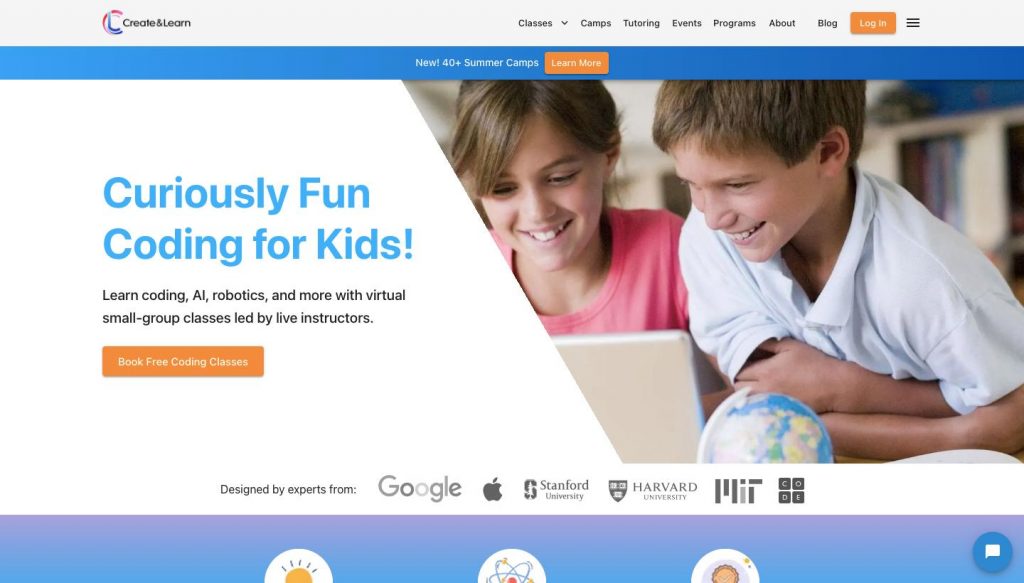
Best for: Ages 5-18
Topics Covered: Robotics, Data Science, AI, and more
Create and Learn offers a broad spectrum of courses that span from basic robotics to advanced data science, all delivered in a highly interactive virtual class environment. This online STEM program is designed to progressively deepen students’ skills and knowledge in various tech areas, preparing them for future technological challenges.
What we like about it: The flexibility and breadth of the curriculum are impressive, catering to a wide age range and interest level. The virtual classroom setup is not only convenient but also effectively supports individual learning paths, making it a leading option for STEM education online.
5. iD Tech
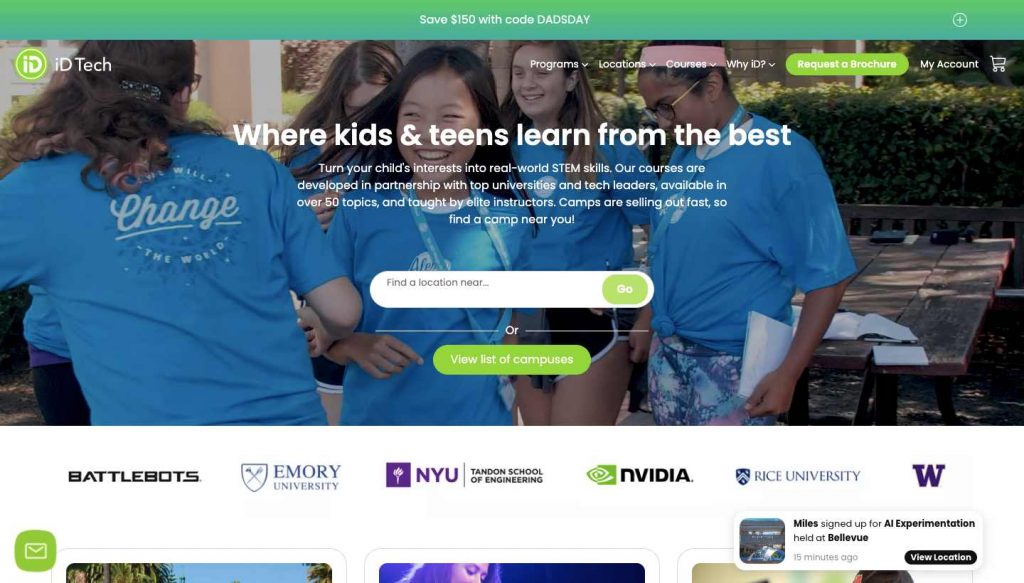
Best for: Ages 7-19
Topics Covered: Coding, Game Development, Robotics
iD Tech is renowned for its tech camps and online private lessons, which cover a wide array of tech topics suitable for children and teenagers. Their courses are tailored to match different age groups and skill levels, ensuring that every student finds something challenging and fun.
What we like about it: iD Tech’s strength lies in its comprehensive course offerings and its emphasis on creating a learning pathway that aligns with each student’s interests and career aspirations in tech. The camps provide a blend of education and fun, making them a preferred choice among stem programs for elementary students and beyond.
6. Code.org
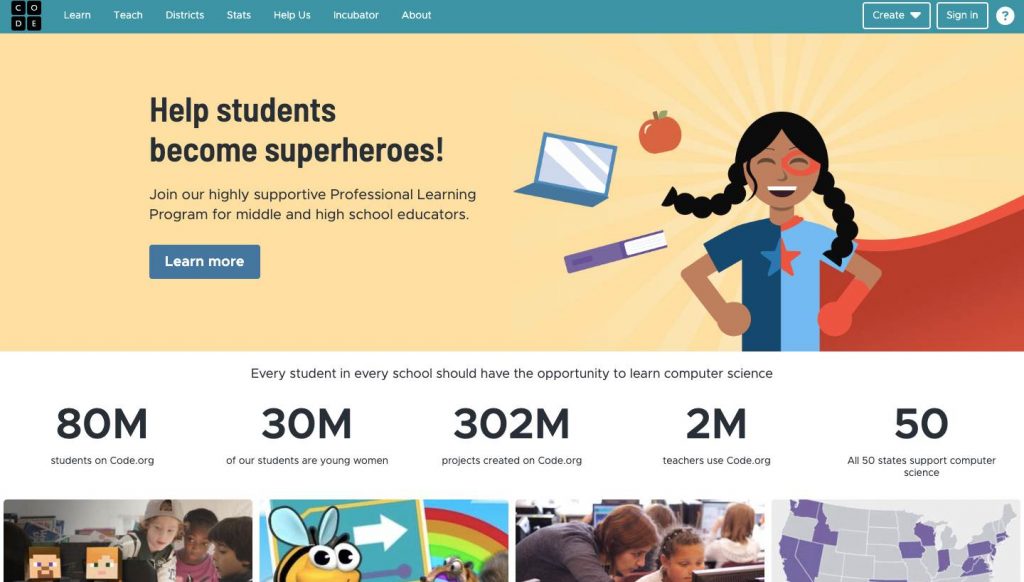
Best for: All ages
Topics Covered: Computer Science, Programming
Code.org is a nonprofit dedicated to expanding access to computer science in schools and increasing participation by young women and students from other underrepresented groups. Their free programming courses and the global Hour of Code events have introduced millions of students worldwide to the basics of coding.
What we like about it: What sets Code.org apart is its global impact and commitment to making coding education universally accessible. The Hour of Code events not only teach programming skills but also inspire students to explore further education and careers in tech, promoting a more inclusive future in STEM.
7. Cubit Education
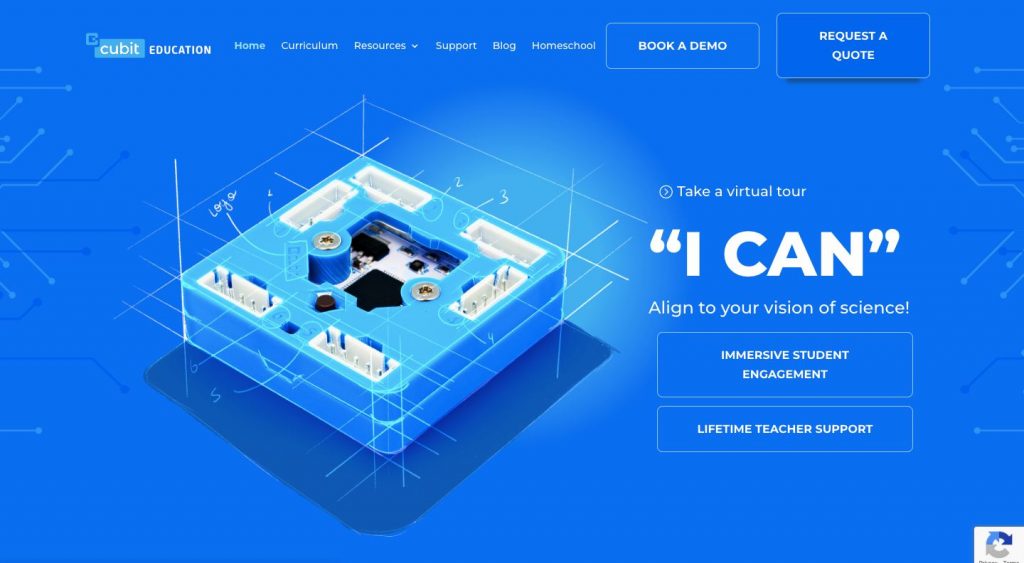
Best for: Ages 8-16
Topics Covered: Robotics, Programming
Cubit Education offers a kit-based learning experience where students build and code robots using proprietary hardware and software. The curriculum focuses on key programming languages and engineering principles, structured to progress from basic to complex tasks. This program facilitates a deep understanding of mechanical and software operations through real-world problem-solving scenarios.
What we like about it: The key advantage of Cubit is its robust platform that allows students to see immediate results of their coding through physical robots, reinforcing the learning process and making abstract concepts tangible.
8. Science4Us
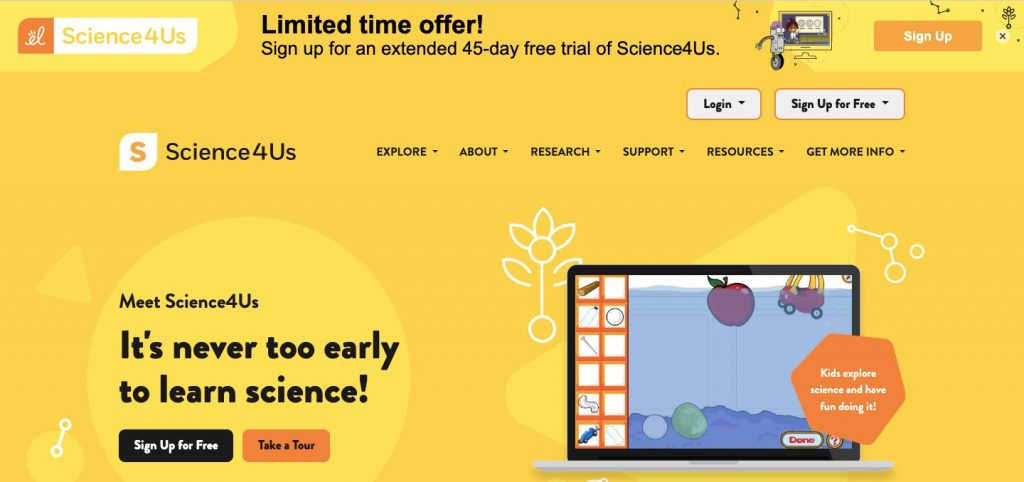
Best for: Ages 5-8
Topics Covered: General Science, Earth Science, Life Science
Science4Us is one of the best elementary stem programs that focuses on foundational scientific principles. The program includes a variety of interactive online modules that cover essential topics in physical, life, and earth sciences. It uses animations, interactive activities, and hands-on experiments to explain complex concepts in a simple, engaging manner.
What we like about it: Science4Us excels in making science accessible and enjoyable for young children, using age-appropriate content that instills a strong foundation in science while sparking a lifelong curiosity in the field.
9. Snapology
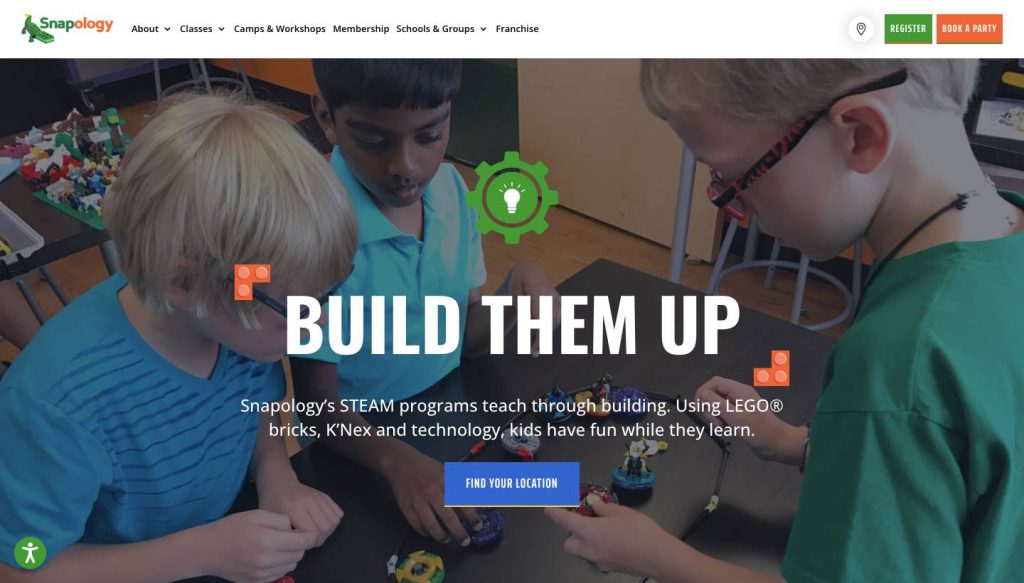
Best for: Ages 4-14
Topics Covered: Engineering, Technology, Robotics
Snapology integrates play with learning using LEGO bricks and other building materials to teach technology and engineering concepts. The program offers structured classes that focus on robotics and mechanical design, where students engage in collaborative projects that require critical thinking and creativity. Snapology’s curriculum is designed to teach technical skills through interactive, project-based learning.
What we like about it: Snapology’s approach to combining creative play with educational goals is highly effective. The use of LEGO and similar materials to teach complex engineering and technology principles in a fun, engaging way stands out as a strong point.
10. CodeMonkey
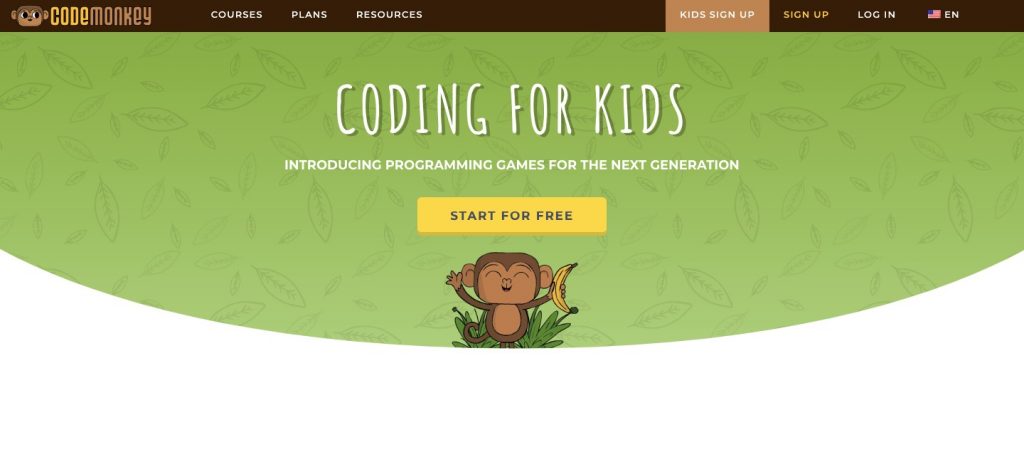
Best for: Ages 6-14
Topics Covered: Coding, Game Design
CodeMonkey offers an interactive platform where children learn to code by playing fun and educational games. The curriculum includes step-by-step coding challenges that teach real programming languages such as CoffeeScript and Python. This online STEM program is designed to make learning to code accessible and engaging for young students.
What we like about it: CodeMonkey’s game-based learning approach is highly effective in keeping children motivated and interested in coding. The platform’s structured courses ensure that students develop coding skills progressively while having fun.
Related Reading: Best Game-Based Learning Platforms for Kids
11. EdX (STEM)
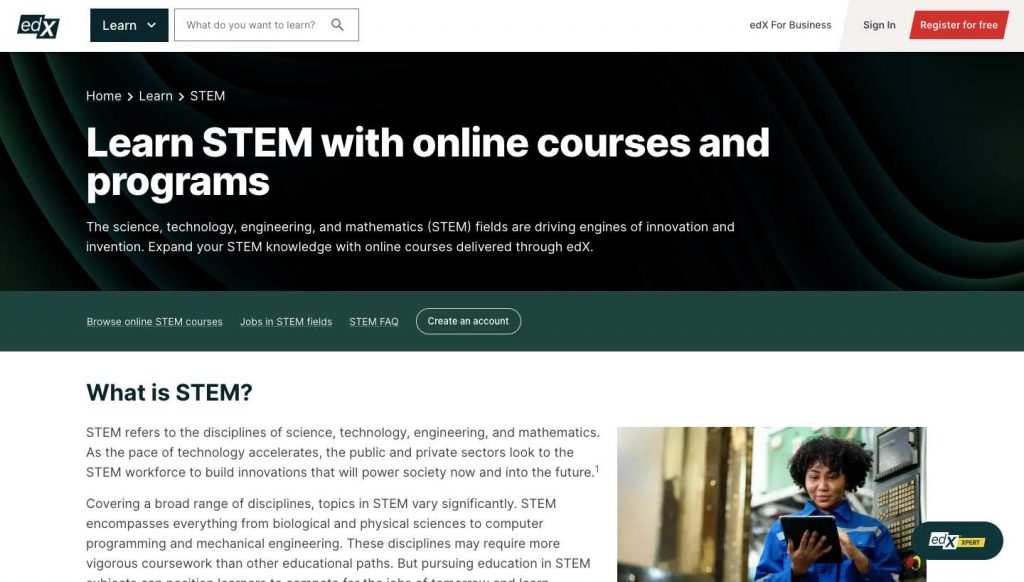
Best for: Ages 13 and up
Topics Covered: Various STEM subjects including Computer Science, Engineering, Mathematics
EdX offers a wide range of online STEM courses from top universities and institutions worldwide. These courses cover advanced topics in computer science, engineering, and mathematics, providing a higher education level of learning. Students can choose from self-paced or instructor-led courses to suit their learning styles.
What we like about it: EdX stands out for its collaboration with prestigious universities, offering high-quality STEM education online. The variety of courses available allows students to explore different fields in-depth, making it a versatile choice for advanced learners.
Related Reading: Best STEM Projects for Middle School Kids
12. CodeWizardsHQ
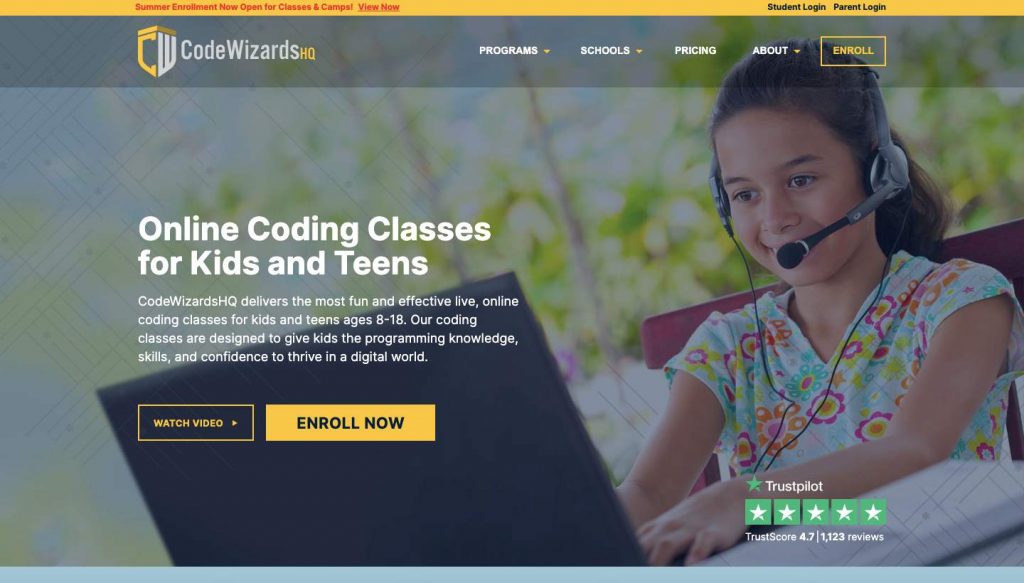
Best for: Ages 8-18
Topics Covered: Programming, Web Development, Data Science
CodeWizardsHQ offers structured coding courses through an interactive online platform. Each course is taught live by experienced instructors, ensuring personalized attention and real-time feedback. The curriculum spans beginner to advanced programming, including languages such as Python and JavaScript, and focuses on project-based learning to build practical skills applicable in technology careers.
What we like about it: What stands out about CodeWizardsHQ is its comprehensive support system, including a progress-tracking portal for parents and post-course guidance on using newly learned skills in real-world applications. This holistic approach teaches coding and how to navigate the tech industry.
How Do I Get My Child Into STEM?
- Identify Interests: Start by observing what naturally interests your child—whether it’s building things, solving puzzles, or exploring nature. Use these interests as a gateway to introduce them to related STEM activities.
- Choose the Right Programs: Select STEM programs that match your child’s age and interests. For younger kids, programs that use play and stories to teach science and math can be particularly effective. For older children, look for more challenging projects that involve coding, robotics, or advanced math.
- Use Everyday Situations: Incorporate STEM learning into everyday activities. Cooking can teach measurements and chemistry, while playing with toys like LEGO can introduce basic engineering concepts.
- Encourage Questions: Foster a learning environment where questioning is encouraged. Help them explore the answers through experiments or further research, showing them that learning is a continuous process.
- Provide Tools and Resources: Equip your child with the tools they need for exploration, such as science kits, building materials, or access to educational websites and apps focused on STEM.
- Connect with Mentors and Clubs: Engage with local STEM clubs, camps, or online STEM classes. Connecting with mentors or like-minded peers can provide both inspiration and guidance.
- Stay Involved: Participate in STEM activities with your child. Your involvement not only supports their learning but also strengthens your bond through shared experiences and discoveries.
Conclusion
Choosing the best STEM programs for kids can profoundly impact their future in technology and sciences. Explore these top recommendations to find a program that excites and educates your child, paving the way for a bright and innovative future.
Related Reading: Best STEAM Activities for Kids of All Ages
Frequently Asked Questions (FAQs)
Which is the best online homeschool STEM program?
SplashLearn stands out as one of the best online homeschool STEM programs, offering a comprehensive math curriculum that is engaging and educational for children.
Are online STEM courses good for kids?
Yes, online STEM courses are excellent for kids as they provide interactive and practical learning experiences that can significantly enhance their problem-solving skills and understanding of scientific concepts.
When should kids start STEM?
Kids can start engaging with STEM activities as early as preschool. Early exposure to simple science, technology, engineering, and math concepts can spark a lasting interest and build foundational skills.
Is STEM good for ADHD students?
STEM can be very beneficial for ADHD students. The hands-on, engaging nature of STEM learning can help maintain their interest and focus, and the structured problem-solving involved can improve their ability to concentrate and stay organized.

















